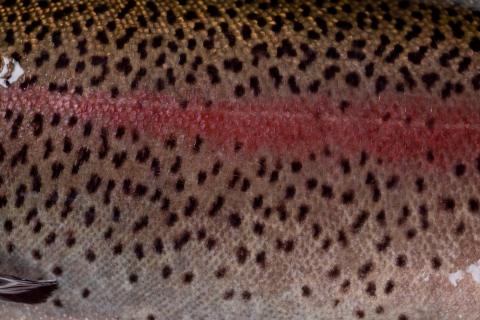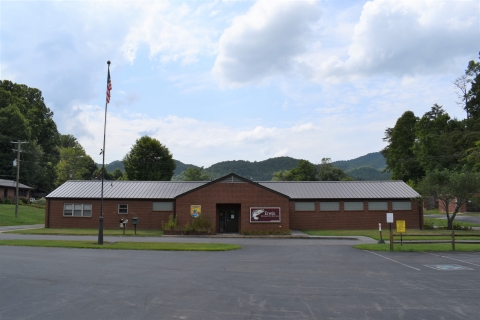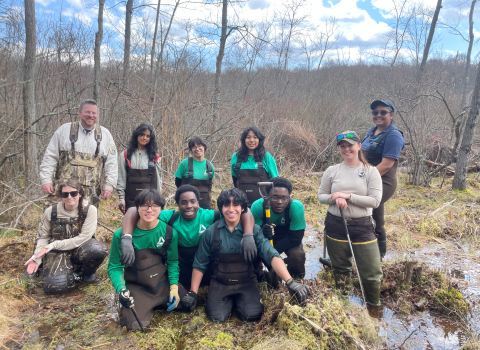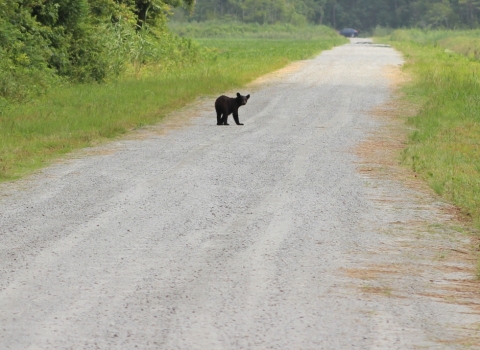In the mountains of western North Carolina, fall generally ushers in a busy tourist season. That’s when visitors from all over flock to the area for a drive on the Blue Ridge Parkway, a peek at the changing colors of leaves on the trees scattered throughout the landscape, the crisp weather, and apple picking.
Not this year.
On Sept. 27, at the height of the tourist season, Tropical Storm Helene ravaged the mountains, dumping unprecedented amounts of rain leading to catastrophic flooding, damage, and destruction. Communities and families who lost homes, businesses, cars, and other possessions, even loved ones, will be recovering from Helene for years to come.
Asheville and surrounding areas were flooded. Helene caused millions of people to lose power across the southeastern United States. Phone service and internet were nonexistent in areas. Months after the storm, swaths of western North Carolina still did not have potable water. The full impact of this historic weather event will not be realized for years.
Just a short drive from Asheville, the town of Cherokee was mostly spared the wrath of Helene. Yet the storm did cause pain.
All the rainbow trout in the Eastern Band of Cherokee Indians’ hatchery were washed away.
All of them.
For years, anglers from far and wide have headed to Cherokee for fishing experiences with families and friends.
“The fish that were washed out included our fall and winter stocking, which would have lasted until late December,” said Doug Reed, Fisheries and Wildlife manager for the Eastern Band of Cherokee Indians.
The Tribe stocks 30 miles of streams and three ponds on the Qualla Boundary for visiting and local anglers. Tribal leaders say the rainbow trout fishing industry in Cherokee draws thousands of fishermen and women each year and generates millions of dollars annually for the local economy.
“License sales and the positive economic impact generated by anglers visiting tribal lands to fish are important for supporting the Tribe and their ongoing conservation efforts,” said Tyler Hern, manager of the Erwin National Fish Hatchery.
The negative economic impact of Helene will reverberate in the Cherokee community for some time. That revenue helps fund hatchery operations and improvements.
“The economic impact is yet to be determined,” said Reed. “With the lack of normal stocking, anglers and permit sales have been significantly reduced for this time of year.”
To mitigate the loss of the fish, the U.S. Fish and Wildlife Service has stepped-up to help with the post-Helene recovery efforts. The Erwin hatchery, in nearby Erwin, Tennessee – also hit hard by Helene – is transferring adult rainbow and brook trout to the Tribe to replace fish lost by the storm.
“Collaborating with the Eastern Band of Cherokee Indians to support their fishery program allows the Service to directly work with our partners, and to conserve, restore and enhance fish and other aquatic resources for the continuing benefit of the American people,” Hern said.
The Service and the Tribe have worked together for years.
“Since the storm, the Erwin hatchery has really stepped-up in directing fish our way,” Reed said. “Erwin’s close proximity is optimal for the relationship because it allows multiple trips if needed.”
This post-Helene partnership helps set up the Eastern Band of Cherokee Indians for continued success and promises wonderful fishing experiences for anglers expected to flock to the area when the season opens in March.
The Service routinely transfers fish to the Tribal hatchery from Erwin; Chattahoochee Forest in Suches, Georgia; Dale Hollow in Celina, Tennessee; Greers Ferry in Heber Springs, Arkansas; Norfork in Mountain Home, Arkansas; and Wolf Creek in Jamestown, Kentucky.
Erwin supplies trout eggs taken from recreationally important species, as well as retired and surplus broodstock broodstock
The reproductively mature adults in a population that breed (or spawn) and produce more individuals (offspring or progeny).
Learn more about broodstock rainbow and brook trout to the Tribe.
The Service routinely works with the Tribe’s Natural Resource Department. to recover endangered and threatened species on Tribal lands. Many are culturally and historically important to the Eastern Band of Cherokee Indians.





